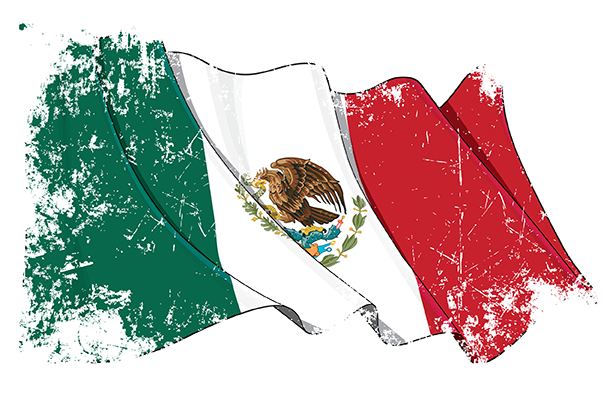 Mexico, like many of its Latin American neighbors, relies on a value-added tax, or VAT, to raise a substantial portion of its government revenue. The VAT essentially requires companies to act as tax collectors on their own transactions, so it relies on accurate invoicing to confirm proper remittances.
Mexico, like many of its Latin American neighbors, relies on a value-added tax, or VAT, to raise a substantial portion of its government revenue. The VAT essentially requires companies to act as tax collectors on their own transactions, so it relies on accurate invoicing to confirm proper remittances.
In recent years, Mexican tax authorities have increasingly turned to electronic solutions to detect errors and/or fraud in tax reporting, and have promulgated e-invoicing and e-accounting regulations aimed at increasing the efficiency of government audits. These efforts have clearly paid off, resulting in a 34 percent increase in VAT collections in just a single quarter.1
Independent of their success in raising revenue, Mexico's e-invoicing and e-accounting regulations also have far-reaching implications for business conduct in the country. In recent years, both Mexican citizens and the international community have called for increased transparency into flows of money both into and out of the Mexican treasury and marketplace. The government's increased focus on accurate financial reporting for tax purposes has helped to foster an environment that encourages—and rewards—diligent corporate self-monitoring.
Recommended For You
Notwithstanding the initial burden of implementing automated solutions in accordance with Mexican e-invoicing and e-accounting requirements, companies are apt to enjoy opportunities to reduce costs and regulatory exposure along the way.
The Mexican E-invoicing and E-accounting Regulatory Landscape
In 2011, certain Mexican companies were required to start issuing "facturas electrónicas" (electronic invoices) in their business transactions, which could be transmitted and approved via government services. Then, on May 31, 2013, the Mexican tax authority (Servicio de Administración Tributaria, or SAT) published the "Segunda Resolución de Modificaciones a la Resolución Miscelánea Fiscal para 2013," a regulation requiring all companies generating more than 250,000 MXN in annual revenue (approximately US$12,500 today) to transition to using the government's standardized e-invoicing system for all goods and services invoices and pay slips, beginning January 1, 2014.
 These standardized electronic invoices, called "comprobante fiscal digitales por Internet," or CFDIs, are digital versions of paper invoices that are encrypted, bear digital signatures ("sellos digitales certificados") verifying their origin and authenticity, and are stored on central databases hosted by local tax authorities or government-approved vendors. In addition, CFDIs must include the name, address, and tax registration numbers of the company and the customer; the invoice number, date, and city of issuance; the digital certificate serial number, authorization number, and authorization year; the description, quantity, and unit price of each item invoiced; the amount of income tax and VAT; and the total value of the transaction. For imports, customs information must also be provided.
These standardized electronic invoices, called "comprobante fiscal digitales por Internet," or CFDIs, are digital versions of paper invoices that are encrypted, bear digital signatures ("sellos digitales certificados") verifying their origin and authenticity, and are stored on central databases hosted by local tax authorities or government-approved vendors. In addition, CFDIs must include the name, address, and tax registration numbers of the company and the customer; the invoice number, date, and city of issuance; the digital certificate serial number, authorization number, and authorization year; the description, quantity, and unit price of each item invoiced; the amount of income tax and VAT; and the total value of the transaction. For imports, customs information must also be provided.
In 2015, Mexico upped the e-invoicing ante by mandating real-time financial reporting linked to CFDI issuance. Specifically, companies that earned more than 4 million MXN (approximately US$200,000 today) in 2013 were required to start electronically signing and submitting e-contabilidad (e-accounting) reports—with charts of accounts, trial balances, and journal entries—to the SAT. The SAT then used those new e-accounting reports in conducting real-time audits as part of a program it implemented in 2016. All companies subject to the regulations are now required to archive their e-invoicing and e-accounting records for no less than five years.
More recently, the SAT announced modifications to the standard CFDI, which it expects will yield higher-quality transactional data for use during the higher number of electronic audits it plans to perform in 2017. The SAT also anticipates expanding e-invoicing to the export process this year, which will allow Mexican authorities and their international counterparts to cross-reference transactions and ensure proper tax treatment and reporting in global business.
Finally, Mexico is currently in the process of launching a new regulation to electronically document payment receipts ("recibos de pago"). As of July 1, these receipts must be incorporated into the CFDI process for SAT to track. Receipt information must include the payment date, method, currency, exchange rate, amount, check number, supplier's bank details, buyer's bank details, tax identification numbers, validation certificate, electronic seal, and a link to the relevant CFDI. This new process will enable the SAT to track the partial payment of invoices, which has in the past provided a loophole for those who would seek to remit less than the full amount owed on each transaction.
Consequences of Noncompliance
As noted above, CFDIs and e-accounting reports enable the SAT to monitor Mexican businesses in real time, so that the agency can quickly (or at least more quickly) detect discrepancies between a company's financial reports and its tax remittances. Whenever it does note a discrepancy, the SAT will raise it with the company through a personalized tax mailbox that companies are expected to monitor, and will automatically perform an electronic audit of any related transactions. Even the smallest errors have led to fines of more than US$4,000 per invoice. Moreover, a recurrence of errors may lead to a full audit by the SAT. As of October 2016, the SAT reported that it had performed approximately 11,000 electronic audits and levied 5,358 fines totaling 55.8 million MXP, which ultimately resulted in the closure of 565 establishments due to noncompliance.
Regardless of whether it results in direct penalties, a full SAT tax audit may have operational consequences for the audited company. Indeed, tax audits that reach beyond a business's electronically available records may continue for weeks or even months, and tie up valuable company resources that may be needed elsewhere.
Although the SAT has now established procedures by which companies with noted deficiencies may resolve claims (entering into "acuerdos conclusivos") without resorting to a full audit, the only such resolution reached so far involved payment of the company's full tax debt, as calculated by the SAT, plus payment of a penalty worth approximately 20 percent of the amount by which the company originally underpaid. Whether or not a full audit is required, noncompliance with e-invoicing and e-accounting regulations can have a very real impact on Mexican companies' bottom lines.
In addition, increased scrutiny on invoices and receipts for tax purposes may undermine the credibility of other financial reports, and even draw the attention of other domestic and international regulators. For instance, if a company doing business in Mexico is a registrant with the U.S. Securities and Exchange Commission (SEC)—or is otherwise subject to U.S. anti-corruption, transparency, or reporting laws—the U.S. Justice Department and/or SEC may take interest in any noncompliance that the Mexican government observes.
Increased Burden Could Bring Increased Benefits
There is no doubt that implementing the infrastructure and operational tools necessary to comply with Mexico's ever-evolving electronic invoicing and reporting landscape can be burdensome. For instance, companies' ERP systems must be modified to accommodate government authentication processes and all other CFDI requirements.
The burden is even higher for companies that do business in both Mexico and other Latin American countries. Indeed, each of the eight Latin American countries that now rely on electronic invoicing to monitor tax reporting has mandated a standardized invoice template and authentication processes that are uniquely tailored to its own regulations. So companies must engineer IT systems that either separately satisfy requirements in multiple jurisdictions or take the more conservative approach of engineering their IT systems to comply with the most stringent set of requirements to which they may be subject.
For some companies, compliance will require substantial effort. Yet the Mexican government need not be the only beneficiary of this effort. Embracing these demands may actually benefit businesses more than it disrupts them. The automation that was originally intended to facilitate government tax collection efforts can also be used by companies to drive process improvements in other finance-, logistics-, and compliance-based operations as well. For instance, transitioning from a paper-based system to electronic invoices and financial reports enables companies to reduce document processing time and storage costs, and to eliminate manual data-entry errors and inconsistent data-collection practices.
In addition, accounts payable, accounts receivable, shipping, receiving, and other finance and supply chain functions can be streamlined on a single enterprise management platform and programmed to proceed upon government CFDI authentication, reducing bureaucratic and processing delays (e.g., verification of identity and tax eligibility, journal entry reversals, transaction voiding) and improving liquidity.
Finally, the SAT's ability to run targeted data analytics on existing electronic records reduces the time and resources companies must expend to demonstrate their tax compliance and respond to routine regulatory inquiries (which will no doubt diminish as companies continue to improve their own analytics capabilities).
Looking Ahead: Ensuring Compliance
Although Mexico's e-invoicing and e-accounting regulations were promulgated with the immediate purpose of monitoring and increasing tax revenue, a tax compliance program alone is insufficient to avoid the regulatory wrath of the SAT. Companies doing business in Mexico also need to implement robust internal policies, procedures, and controls that encompass the multidisciplinary nature of compliance.
Given that sales, marketing, finance, accounting, logistics, and internal audit employees all have exposure in business and invoicing processes, they all need education on compliance requirements. Comprehensive and comprehensible training programs should focus not only on competency requirements for each work stream, but also on the purpose behind the controls each employee will be asked to apply.
Companies doing business in Mexico, and/or elsewhere in Latin America, should prioritize the development of global e-invoicing solutions. They should also recruit finance and IT managers to work together to ensure the interoperability of these systems.
Moreover, companies should regularly perform data analytics on their own financial records to pinpoint outliers and anomalies that may draw regulatory scrutiny. Such transaction monitoring enables companies to proactively address red flags before they become systemic violations or potential enforcement issues.
Finally, companies must stay on top of developments in all of the e-invoicing and e-accounting regulations applicable in all jurisdictions where they do business. The numerous changes to Mexico's CFDI standards in the past half-decade demonstrate how quickly a solution can become outdated. Companies making a good-faith effort to comply with the regulations do not want to be caught unprepared.
Nonetheless, it is quickly becoming clear that government-mandated electronic invoicing models are here to stay—at least in Mexico. Companies should be ready for when, not if, their invoices become subject to government audit.
1. Mexico is in good company in its e-invoicing and e-accounting efforts. Many other Latin American countries—including Argentina, Brazil, Chile, Colombia, Ecuador, Peru, and Uruguay—also require the use of electronic invoices, making the region a worldwide leader in e-invoicing and e-accounting regulation. Today, upwards of 95 percent of business transactions in the largest Latin American economies are electronic.
————————————–
 Hillary Levun is a counsel in the Commercial Litigation practice at Perkins Coie LLP and a member of the White Collar & Investigations group. Her practice focuses on anti-corruption and compliance issues in Latin America.
Hillary Levun is a counsel in the Commercial Litigation practice at Perkins Coie LLP and a member of the White Collar & Investigations group. Her practice focuses on anti-corruption and compliance issues in Latin America.
 Steven Neuman is a managing director with StoneTurn, a forensic accounting and expert services firm. He advises clients and companies across Latin America.
Steven Neuman is a managing director with StoneTurn, a forensic accounting and expert services firm. He advises clients and companies across Latin America.
© Touchpoint Markets, All Rights Reserved. Request academic re-use from www.copyright.com. All other uses, submit a request to [email protected]. For more inforrmation visit Asset & Logo Licensing.



